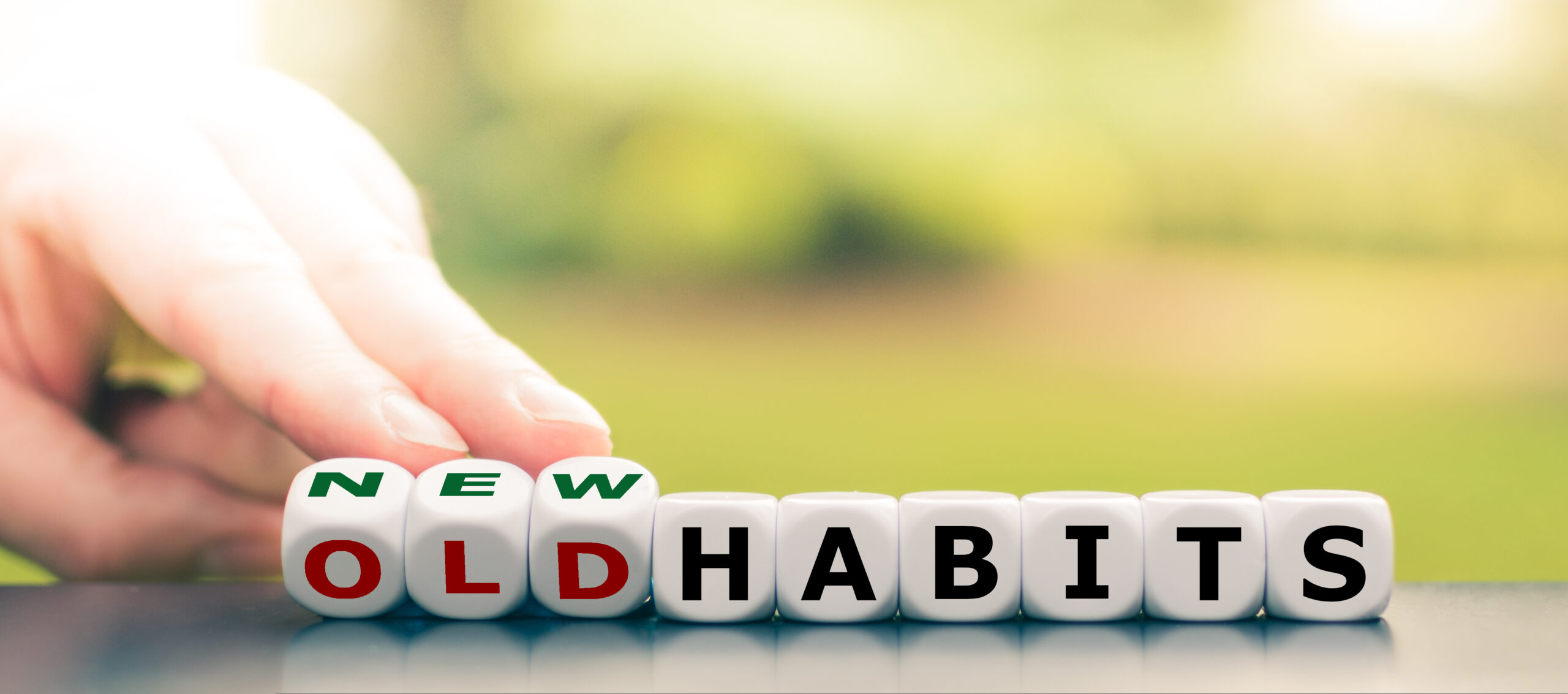As human beings, we are all creatures of habit. We seek predictability and reliability as a means of keeping ourselves safe. Habitual behaviour – in other words, behaviour that is repeated until it becomes automatic – helps us foster that feeling of security.
Habits, especially those we perform on a subconscious level, are vitally important as our brains have limited capacity to process new information and rely on repeated patterns to smoothly navigate daily life. The trouble is, some habitual behaviours do not always serve us and can have an unhelpful impact on both our own lives and the lives of those around us.
For the individuals in our settings, a central part of our role, is often to support change in certain habitual behaviours to ensure they can lead a rich and full life.
Helpful and unhelpful habitual behaviours
In day-to-day life, much of our behaviour is habitual, from eating breakfast and brushing our teeth, to getting dressed and getting to work. Having repeated these behaviours over and over again, we eventually operate on autopilot, freeing up capacity in our brains for dealing with new information.
Many of the habitual behaviours we develop could be considered ‘helpful’; for example, fuelling our bodies with nutritious food and taking regular exercise, both of which keep us fit and healthy. Similarly, developing healthy coping mechanisms to self-regulate when we feel overwhelmed helps us to stay calm and regulated in stressful situations. With enough repetition over time, these behaviours and responses become automatic.
However, sometimes, less helpful habitual behaviours can also take root: eating junk food while watching TV; smoking; biting nails; or reacting in particular ways to certain people or environments. When we repeat these behaviours again and again, we begin to perform them on a subconscious level, making them difficult to recognise and address. Our brains get stuck in fixed patterns.
Habitual behaviours in our settings
When we know the individuals we support well, we can often predict how they may react to certain stimuli and the behaviours we might see in a particular situation.
While being able to foresee behaviour and redirect an individual to an alternative activity can be a useful way to minimise risk and keep people safe, if we are not careful, we can end up unintentionally stifling individuals’ development and contribute to the likelihood of certain behaviours recurring. For example, if someone in our care repeatedly reacts to loud noises by becoming agitated and showing physically risky behaviours, we can sometimes find ourselves saying things like, ‘She’s always like this,’ or, ‘There’s nothing we can do about it’.
Alternatively, we might try to remove known triggers entirely, which may be a temporary solution, but doing so removes the opportunity for an individual to have new experiences that can, in turn, help to change emotions, driving alternative behaviours.
By anticipating and expecting the habitual behaviour, we can unwittingly perpetuate it until it becomes a self-fulfilling prophecy or avoid it completely leaving an individual with no strategies to use when they inevitably face this situation again.
So how can we support individuals to change a cycle of unhelpful habitual behaviours?
Emotions drive behaviour
Our job as professionals is to instigate and support change in the habitual behaviours that do not serve the individuals in our care. These include behaviours that are dangerous and that put people at risk of harm; behaviours that reinforce negative self-beliefs; or behaviours that could be considered unhelpful.
We can start by exploring how thoughts and feelings drive behaviours. Let’s consider an individual who has difficulty managing transitions. While we all work in different types of settings, transition is something we all have to support in our day-to-day roles. For example, this could be a child in school moving between break time and the next lesson, a service user moving from one activity to another, or an adult arriving at, or leaving a service.
When they find themselves in a situation where they have to transition from one activity or location to another, they might experience feelings of anxiety and being overwhelmed. These feelings can manifest physiologically, causing their heart to race, their chest to tighten and their breathing to become shallow, as well as feeling sick and unable to focus clearly.
Without conscious choice, these feelings can trigger a ‘fight, flight or freeze’ state which, in turn, drives a behavioural response. This may present as verbal or physical behaviours, running away from the perceived threat, or becoming unresponsive. Over time, these feelings and behaviours are reinforced in a repeating pattern, becoming automatic responses.
If we are to support change in unhelpful habitual behaviours, we need to redirect the behaviour in a way that preserves the dignity of the individual and protects our professional relationship with them, and, importantly, create new experiences that drive different emotions. We can do this by focusing on our responses to the behaviour.
Choosing our response
As with any behaviour change, a useful starting point is to focus on the areas within our control. While we cannot control every eventuality or behaviour in our settings, what we can control is our response to it.
When we witness behaviour that needs support, we too can fall into the trap of reacting in the same way every time, reacting habitually. Unintentionally, our reaction can further heighten the individual’s emotions, leading to an endless negative cycle.
However, by being self-aware and consciously choosing how we respond, we can positively influence the experience and feelings of the individual and encourage different behaviours. Over time and with plenty of practice, we can help to create new experiences, prompt different feelings and develop new, helpful habitual responses.
The importance of pre-planning
It is often easier to identify the habitual behaviour we want to change, than articulate the behaviour we want to encourage. This part of the process might take some considerable pre-planning, where we ask ourselves questions such as: What kind of behaviour would be more helpful? How can we support the individual to practise and develop that behaviour? What part can we play in the process of changing the experience and feelings of the individual?
Taking the time to consider alternatives and formulate a plan well in advance increases the likelihood of success, rather than simply encouraging one behaviour over another without proper forethought about longer-term goals. It is also helpful to take the time to explain to an individual why it is important to change some habitual behaviours, involve them in creating plans, and discuss the potential benefits with them. When we understand the ‘why’, we are more likely to embrace change, even when it feels uncomfortable at first.
Creating a positive feedback loop
Unravelling and redirecting habitual behaviours is a complex and multi-layered process that needs to be handled with care and sensitivity. We also have to be aware of the impact of trauma for some individuals, and the risk of inadvertently re-traumatising them despite having good intentions. And it is important to be realistic and practical about what can be achieved; if we try to change too much, too soon, we risk setting ourselves up for failure.
Supporting change in habitual behaviours involves pulling deeply ingrained patterns out of the subconscious and into the conscious realm, identifying ways to intercept the repeating cycle, and creating a positive feedback loop. We can also look at our own habitual behaviours and examine how helpful they are and create change for ourselves. This process requires strong communication, increased self-awareness, and an openness to change.
It takes time and effort to influence long-ingrained habits, but when everyone recognises the benefits of changing unhelpful habitual behaviours, cycles can be influenced and together we can develop helpful, new behaviours.
Please let us know if you need support with behaviour in your setting. We’re here to help, any time.

